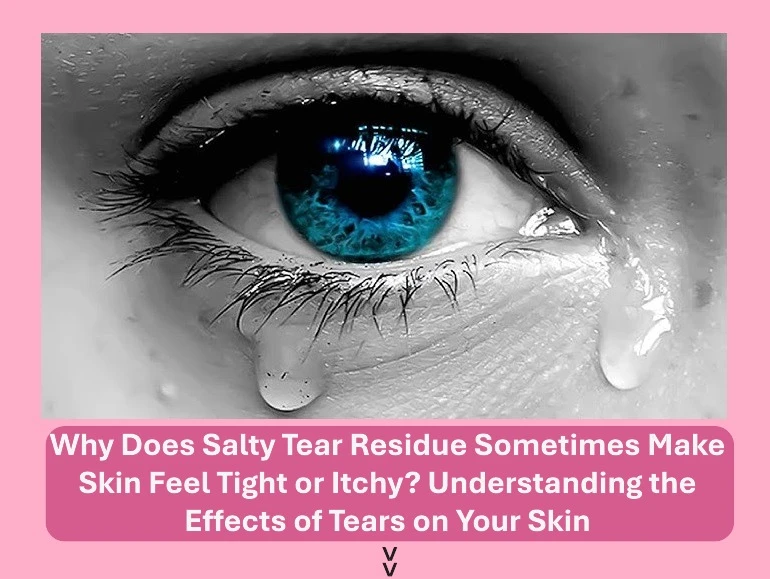Why Does Salty Tear Residue Sometimes Make Skin Feel Tight or Itchy? Understanding the Effects of Tears on Your Skin
Why Does Salty Tear Residue Sometimes Make Skin Feel Tight or Itchy? Understanding the Effects of Tears on Your Skin
Tears are more than just water; they contain a natural blend of salts, proteins, and enzymes designed to protect and nourish the eye. However, when tears dry on your skin, the salty residue they leave behind can lead to unexpected effects — particularly tightness, dryness, or itchiness. Here’s why this happens:
1. Salt Draws Out Moisture
Tears have a relatively high salt content (mainly sodium chloride). When these tears evaporate on your skin, the remaining salt crystals can pull moisture out of the outer layer of the skin through a process called osmosis. This sudden loss of hydration can leave the skin feeling tight and dry.
2. Disruption of the Skin Barrier
The skin barrier, made up of natural oils and protective lipids, helps lock in moisture and keep irritants out. Repeated crying, rubbing your eyes, or wiping tears away can weaken this barrier, making the skin more sensitive. The salty residue then becomes more irritating, sometimes leading to itchiness or redness.
3. Increased Sensitivity in Delicate Areas
The skin around the eyes and cheeks is especially thin and delicate. It reacts more quickly to external irritants like salt, leading to a noticeable feeling of tightness or even stinging after tears dry. This is why your under-eye area or cheeks might feel itchy after crying.
4. Interaction with Existing Skin Conditions
If you already have dry skin, eczema, or rosacea, tear residue can aggravate these conditions. The salt can further dehydrate the skin or trigger mild inflammation, resulting in more noticeable itching and discomfort.
5. Mechanical Irritation
Beyond the chemical effect of salt, the act of wiping tears away with tissues or your hands can also mechanically irritate the skin. This irritation, combined with the drying effect of the salt, amplifies the sensation of tightness and itchiness.
How to Reduce Tear-Related Irritation:
-
Gently rinse your face with lukewarm water after crying to remove salt residue.
-
Pat — don’t rub — your skin dry with a soft towel.
-
Apply a lightweight, hydrating moisturizer to restore moisture and calm sensitivity.
-
Use tissues designed for sensitive skin to minimize friction when wiping tears.
In short, the salty content of tears can temporarily disrupt your skin’s hydration and protective barrier, leading to feelings of tightness and itchiness. With gentle cleansing and hydration afterward, you can help your skin recover and stay comfortable.

Related Blog
What Causes Oily Skin and Can It Be Managed Naturally? Exploring Root Causes and Gentle Solutions
Aug 2, 2025 by Admin
General
What Are the Signs That You Have Sensitive Skin? Key Symptoms to Help You Identify This Delicate Skin Type
Aug 1, 2025 by Admin
General